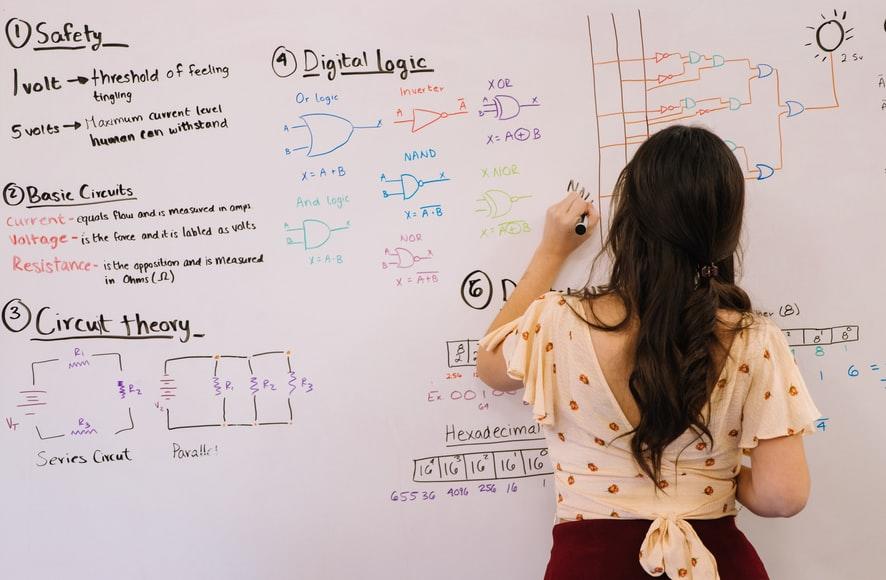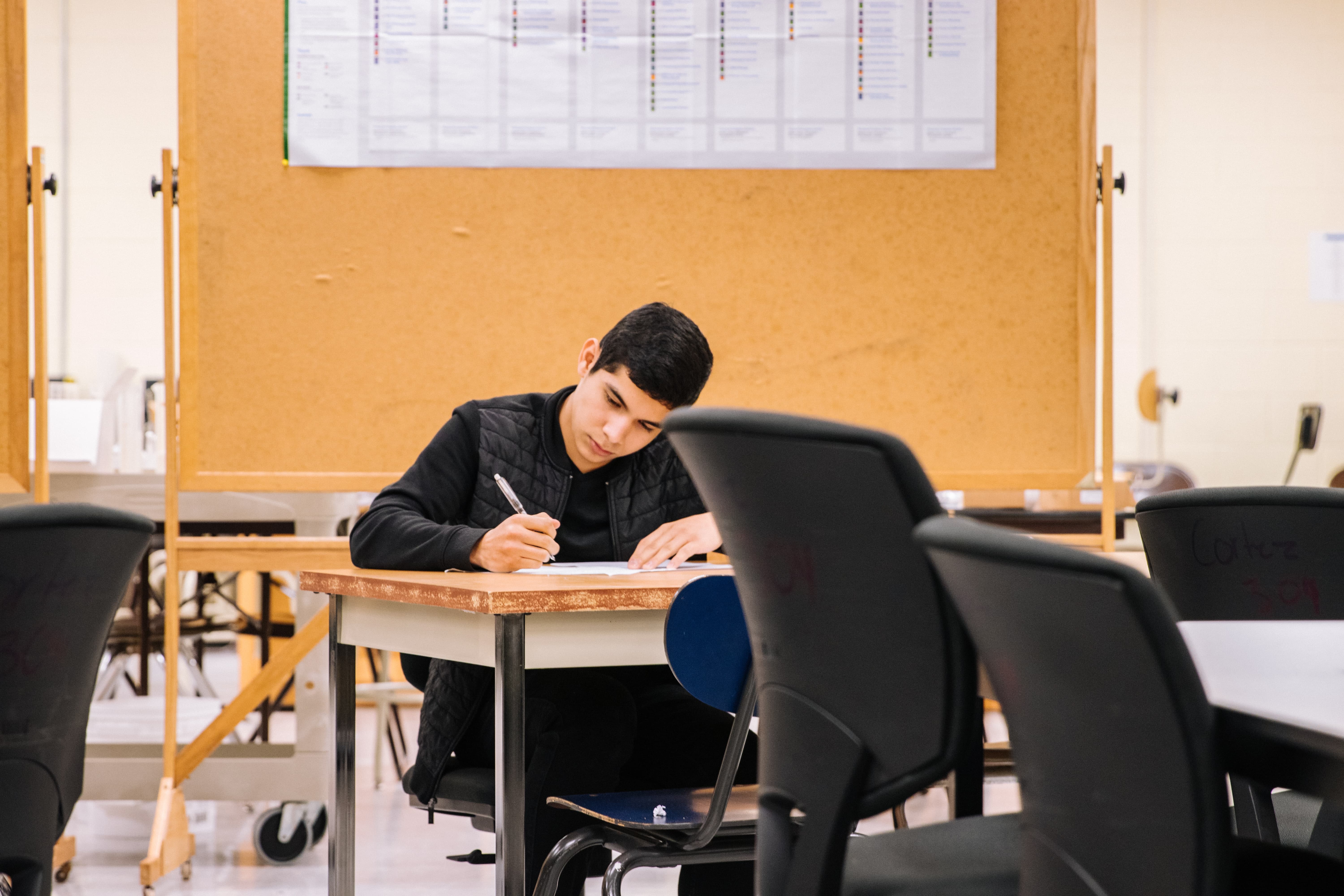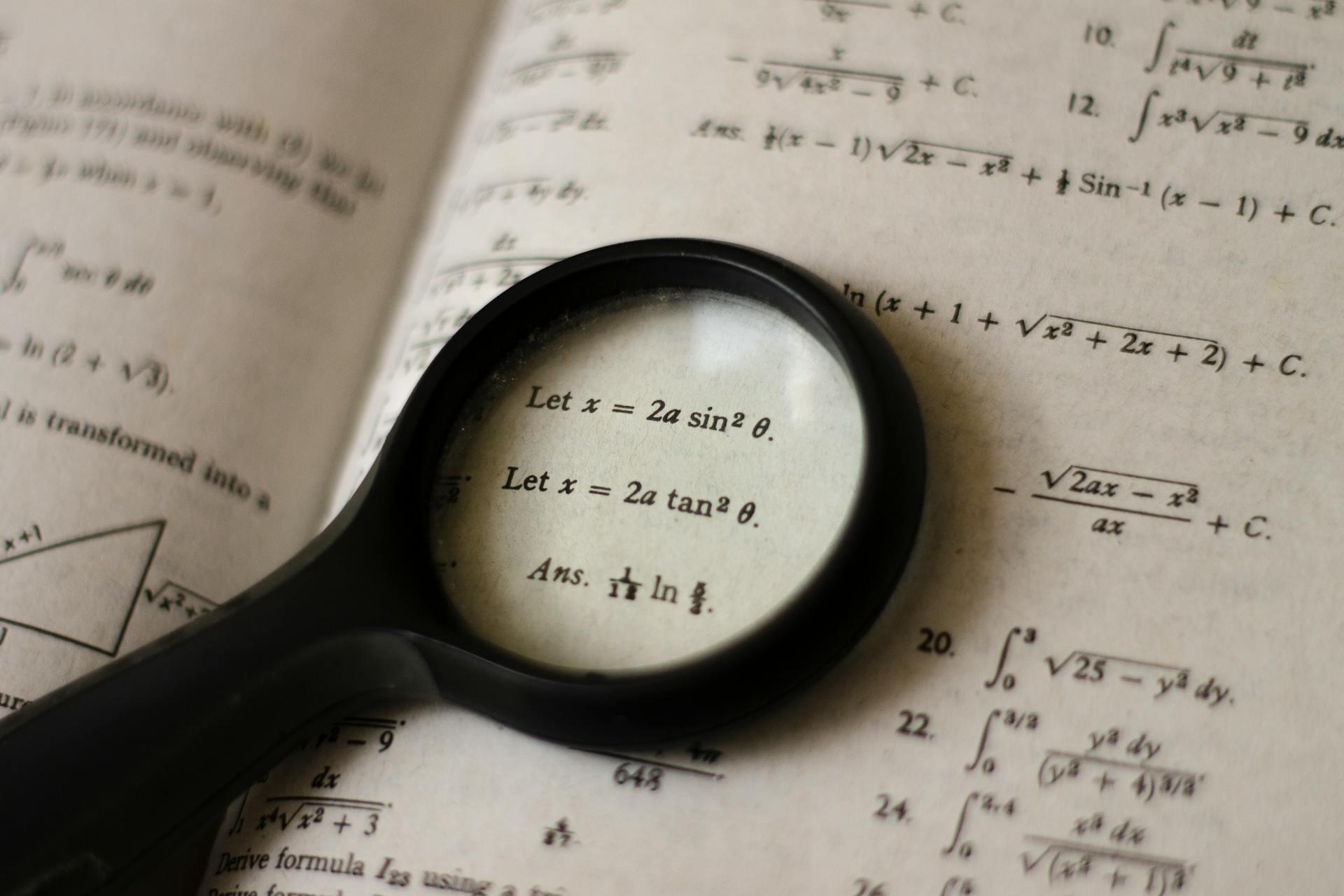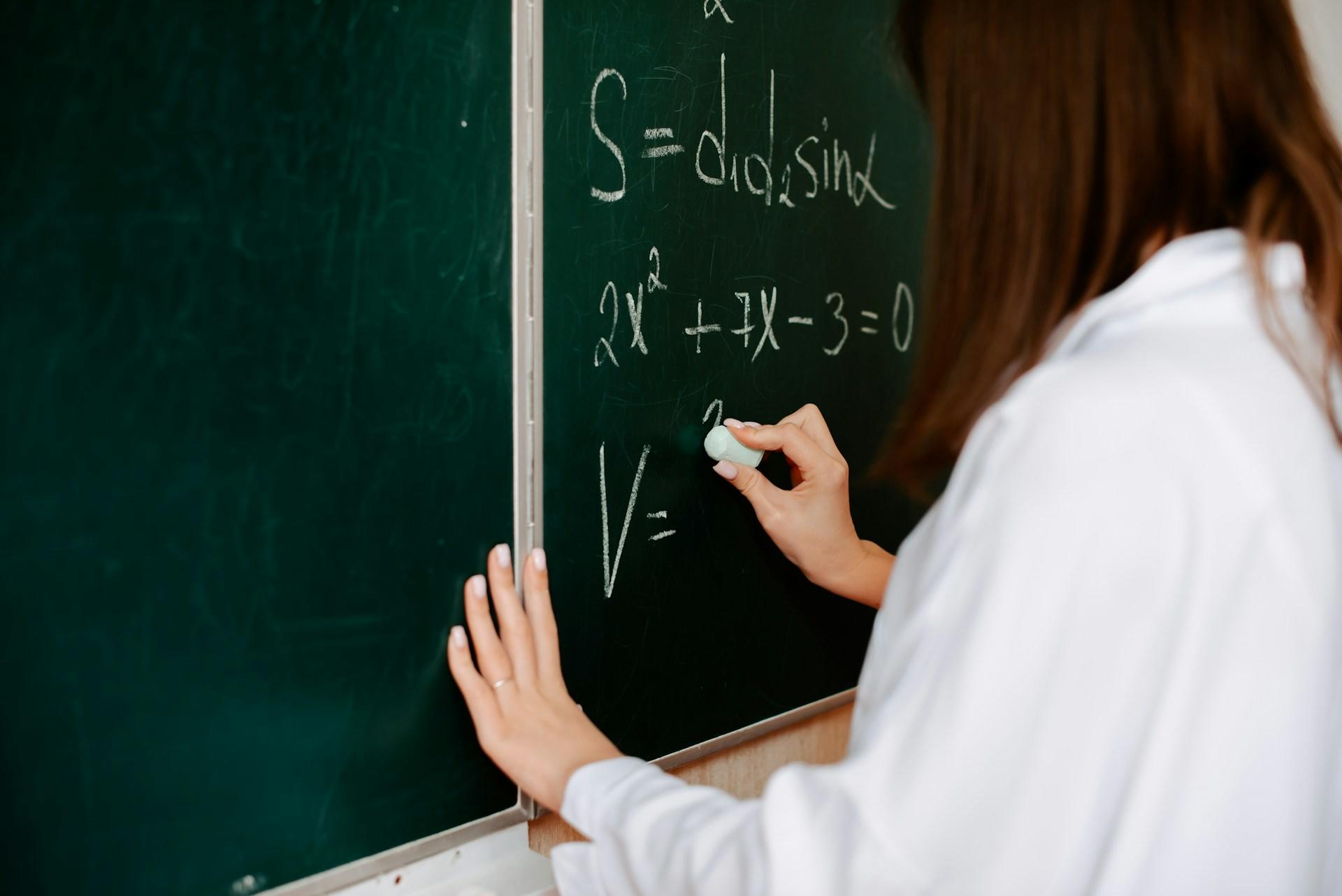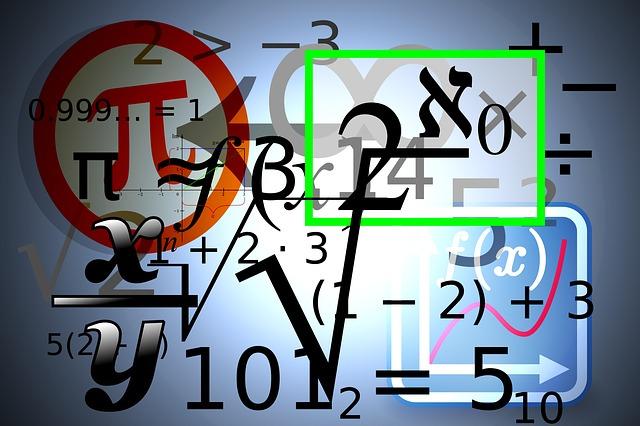Algebra is a discipline of mathematics that deals with symbols and the rules governing their use.
These symbols (currently expressed as Greek and Latin letters) represent quantities with no set values, known as variables in introductory algebra. In mathematics, equations define relationships between variables in the same way that sentences indicate relationships between specific words.
To construct a proper mathematical expression, you will need 'variables' (x, y, and z) and combine them with mathematical actions such as division, multiplication, subtraction, and addition.
Algebra is used in all fields of mathematics, including calculus, trigonometry, and coordinate geometry. For example, 3x + 6 = 9 is a basic algebraic expression.
Symbols are the main component of concern in Algebra. They are linked to each other through 'operators.'
Understanding algebra as a theory is more than just solving a problem to get the correct answer. It applies to all other mathematics disciplines that you will acquire in the future or have already studied.
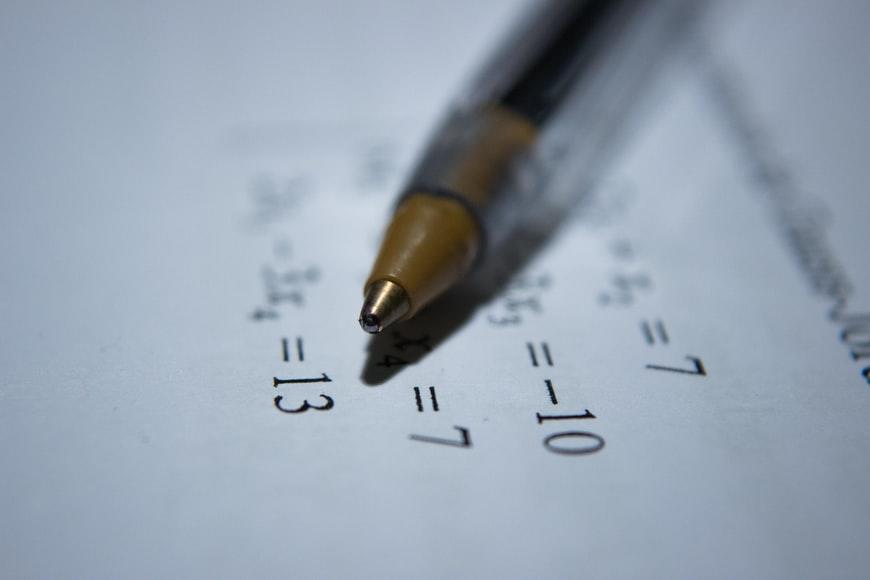

What Are the Fundamentals of Algebra?
Algebra is a discipline of mathematics that works with symbols and the mathematical operations that may be performed on them.
These symbols, which have no set values, are called variables. We frequently witness values that change in our real-life issues. But there is a continuing requirement to express these shifting values.
In algebra, these values are commonly represented by symbols such as x, y, z, p, or q, and these symbols are referred to as variables.
Furthermore, these symbols are subjected to different mathematical operations such as addition, subtraction, multiplication, and division to determine the values.
Fundamental Rules and Properties of Algebra
| Simple Algebra Formulas, Algebraic Rules Or Qualities For Variables, Algebraic Expressions, Or Real Numbers A, B, And C |
|---|
| Addition has a commutative property: a + b = b + a |
| Multiplicative Identity Property: a × 1 = 1 × a = a |
| Multiplication has a commutative property: a b = b a |
| Addition's Associative Property: a + (b + c) = (a + b) + c |
| Additive Identity Property: a + 0 = 0 + a = a |
| Multiplication Associative Property: a (b c) = (a b) c |
| Inverse Additive: a + (-a) = 0 |
| Distributive Property: a (b + c) = (a b) + (a c), or a (b - c) = (a b) - (a c). |
| Reciprocal: Reciprocal of a = 1 |
Different Algebraic Branches
Here is a list of Algebra's branches and sub-branches. These branches are used to determine the values of two or more variables. These are the algebraic branches:
Primary Algebra
This branch is concerned with the fundamental properties of numbers, variables, constants, and their relationships.
Equations, formation, manipulation, expression evaluation, equalities, inequalities, equation solving (algebraic and linear), and other topics are covered in elementary algebra.
Algebra II (Advanced)
A more comprehensive and intermediate algebra phase. This branch's equations aid in the study of the following:
- Equalities
- Inequalities
- Polynomial equation
- Matrices
- Sequences
- Conic sections
- Series
- Rational expression
- Trigonometry
- Graphic functions
- Probability
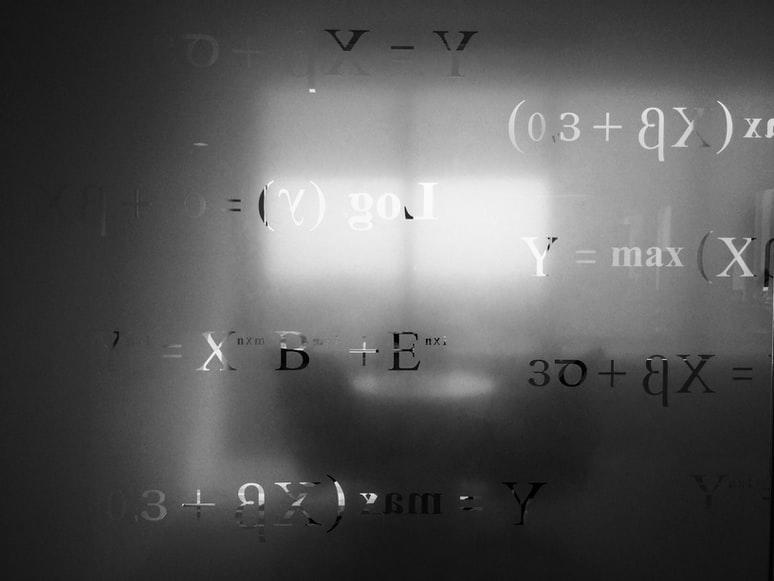
Communicative Algebra
This algebraic branch deals with communicative rings, such as algebraic integer rings, polynomial rings, etc. It covers Banach algebra, ring theory, representation theory, and other topics. It is also considered a subfield of abstract algebra.
Linear Algebra
Linear algebra is a fundamental concept in all branches of mathematics. It is a field of mathematics concerned with linear equations and their representations in the form of vectors and matrices. You will find it taught in most online college algebra courses.
This branch of algebra covers the following topics:
- Introduction to linear algebra
- Relations and computations
- Linear equations
- Relations
- Matrices
- Vector spaces
- Matrix decomposition
Career Guidance for Math Teachers
A math teacher educates pupils on a wide range of mathematical topics. This can encompass general arithmetic and any mathematical sciences such as algebra, geometry, statistics, and calculus.
STEM (science, technology, engineering, and mathematics) instructors teach math.
STEM education has grown in popularity in recent years, as these courses are regarded as critical for training future leaders capable of competing in an increasingly complicated environment.

Job Description for a Math Teacher
Math teachers create lesson plans to instruct their pupils in general or specific mathematics courses. They provide math tasks, homework, and assessments to help their pupils gain knowledge and comprehension. Throughout the school year, they analyze pupils' development and ability.
Math is part of the core curriculum in K-12 public schools. Thus math teachers must keep up with changes in state rules and math learning objectives to assist pupils in satisfying the stated requirements.
You teach standard form algebra as an algebra instructor.
Math professors frequently conduct many sessions throughout the day, with students learning various subjects at various skill levels ranging from beginning to advanced placement.
On the other hand, an online algebra tutor has much more flexibility in their schedule and the education level they teach.
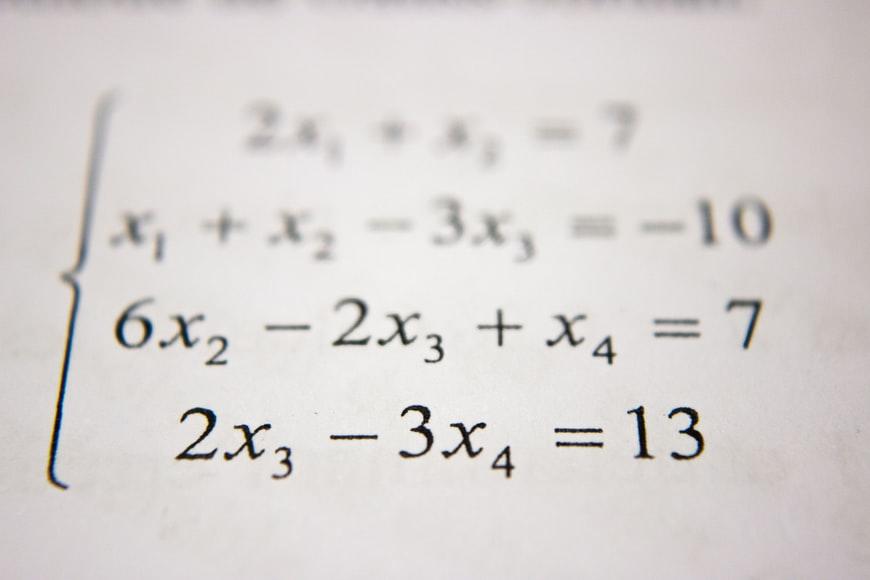
What Does an Algebra Tutor Do?
A math tutor assists a student's academic growth by performing several tasks. Their responsibilities and overarching goals remain the same whether they work online or in person. They can also decide on their specialty, for example, offering a linear-algebra online course.
Here are some of the duties of a tutor in algebra class:
- Assisting kids with their homework and exam preparation
- Students are being taught how to make mathematical computations
- assisting pupils in improving their study habits and classroom skills
- Educating pupils on a wide range of mathematical ideas, calculations, and procedures
Algebra Tutoring Abilities
To become an algebra tutor, you must have a solid set of abilities to assist you in completing your job. You must also be able to teach school children how to pass the algebra 1 practice test. The better your math tutoring abilities, the better you can instruct your students.
As a math tutor, you must have the following abilities:
Knowledge of Mathematics
Math tutors must have high mathematical abilities to teach their pupils properly. Math tutors should grasp at least one level higher than their teaching level. As a tutor, when you teach beginners basic algebra, you need to be ahead of the subject.
Positivity
As an algebra tutor, you must have a good attitude and assist and encourage your pupils throughout the learning process. Positivity and joy can boost their mood, attentiveness, and general conduct.
The positive and go-getter attitude helps learners practice algebra problems with more ease and enthusiasm.
Patience
Instructors must be patient to assist pupils who fail to learn a particular subject. Tutors with patience can adapt their tutoring techniques and learning resources to fit the student's learning pace.
Creativity
Mathematical instructors that are creative can better build fresh and unique teaching approaches. This ability enables them to detect various learning styles and makes studying more enjoyable for pupils of all ages.
Listening Abilities
During tutoring sessions, math tutors must practice active listening. This ability entails considering students' opinions and ideas and listening attentively to what they say. The more they pay attention to the student, the simpler it will be to provide them with the assistance they require.
How to Get a Job as an Algebra Tutor
To become a math tutor, you must first fulfill the job's essential criteria. You can also further your education beyond these criteria to boost your earning potential and grow in your career. To become an algebra tutor, follow these steps:
Complete High School
Finish high school and receive your diploma. While a high school diploma is sufficient to begin tutoring, you can also use it to further your education by enrolling in a local college or a four-year university.
Finish Your Training and Education
Consider earning an associate or bachelor's degree in teaching or a mathematical discipline such as statistics or economics, even if it is unnecessary. If you have a degree, you can further your education by enrolling in a tutoring certification program.
If you want to work in a school, consider formal education training rather than getting a degree. In this regard, you have the choice of obtaining a teacher aide certificate, a teacher's assistant certificate, or a teacher preparation associate degree.
However, please remember that some tutoring companies may require their applicants to complete additional training.
Join a Tutoring Organization
Join a national tutoring organization to get professional guidance and tools. In addition, you can benefit from mentorship opportunities, tutoring certificates, conferences, and networking events as a member of an association.
Get a Tutoring Certification
Decide whether the position necessitates tutoring certification. Then, if required, obtain certification. Tutoring certification gives you extensive training in specific ideas and approaches while also increasing your reputation as a tutor.
Background checks and a minimum of two letters of recommendation are usually required for certification programs.
The American Tutoring Association, the Association for the Tutoring Profession, the College Reading and Learning Association, and the National Tutoring Association all provide tutor certificates.
Obtain Your License
Determine if your education board requires you to obtain a license if you intend to operate in a school setting. If it does, go ahead and get your tutoring license. Keep in mind that you do not need a permit to work as a private tutor.
Set Your Pricing and Advertise Your Services
Set your charges and begin promoting your teaching services on various online platforms or in person if you intend to become a private instructor. As a private tutor, you can also determine your hours.
Where Can You List Yourself as an Algebra Tutor in the United States?
We have listed the requirements you need to fulfill to become an algebra tutor in the US. If you want to pursue this line of work and have the skills and credentials necessary, then sign up as a tutor on Superprof!
If you want to polish your skills further, you can also hire one from there. Instructors at Superprof are experts in their field, and in no time, you will become an algebra expert. They offer lessons for school and college algebra, online and in person.
Summarize with AI:

